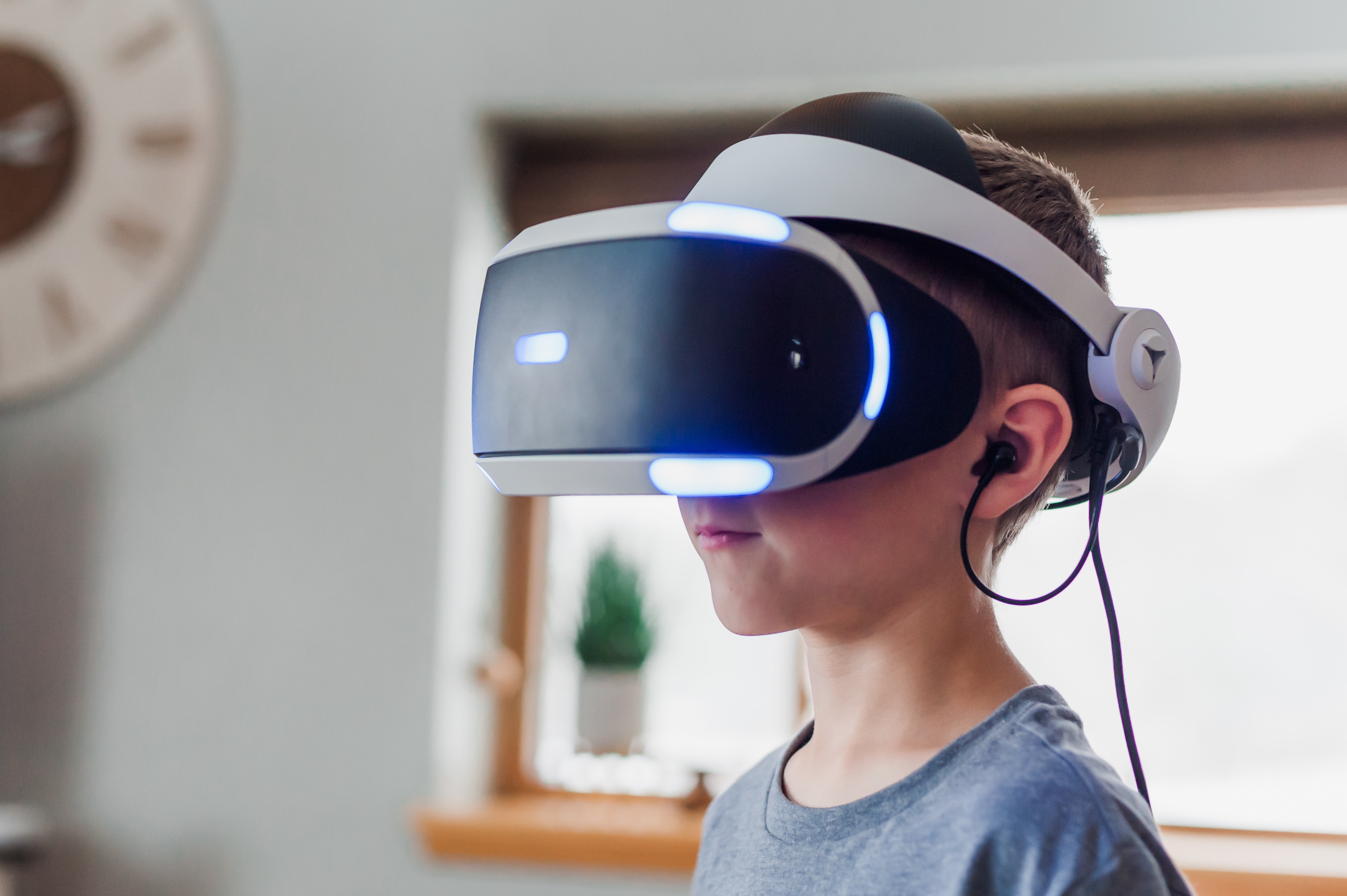Using the Metaverse to Help Students With Intellectual Disabilities
Award-winning educator Phil Hintz is studying how metaverse technologies such as augmented reality and virtual reality can help students with intellectual disabilities build life and occupational skills

Phil Hintz had never experienced anything quite like it.
It was 2018 and he was participating in an immersive virtual and augmented reality simulation in California that gave him a taste of the potential of the metaverse. After donning VR goggles, he found himself on the floor of the Amazon rainforest. He then began to rise upward, and when he looked at his arms, they were the branches of a tree. All around him he heard the rustling of leaves and the chirping of birds.
“You turn and anywhere you look, you're in the Amazon rainforest,” recalls the director of student information at Barrington 220 School District in Illinois. Hintz also felt the wind blowing on him courtesy of a nearby fan working in unison with the images in his goggles.
After a time he heard a distant sound getting closer – this was possible through spatial sound technology – and eventually realized there were people in the forest coming to burn it down. Hintz not only saw the flames getting closer, he could smell it because someone nearby had lit a match as part of the simulation. When the experience concluded, Hintz and other participants were given tree seeds and encouraged to plant a tree, but something had also been planted inside Hintz.

Researching the Metaverse
Over the years, Hintz, a father of six, would think about the experience and the educational potential of similar experiences for all students but particularly students like his son, Joshua, who has Down syndrome.
“He's always wanted to be a fireman, he could tell you everything there is about all the tools in the firehouse and what all the vehicles are used for, who runs them, you name it,” Hintz says. “In virtual reality, he could learn how to fight fires, and possibly even get burned in virtual reality, but not really get burned from a safety standpoint.”
Hintz is now pursuing a doctorate in educational administration and researching the potential of VR and AR for teaching life and occupational skills to people with intellectual disabilities. The well-known educator was recently recognized with an Innovative Leader Award during Tech & Learning’s New Orleans Leadership Summit that stemmed from his role helping his district and others across his state make sure they were compliant with student data privacy laws.
Tools and ideas to transform education. Sign up below.
Developing Life Skills in the Metaverse
When teachers incorporate VR, AR, or other metaverse-type technology into their lessons, it can help build knowledge and enhance learning. “Studies have shown that students will not only have a greater understanding but a greater foundation on the lesson if they have a chance to experience it in that way, rather than just words on a page,” Hintz says.
For students with intellectual disabilities, Hintz believes there is even more potential. So far there’s been limited research but the research that exists has shown promise. “One of the articles that I was able to find on students with special needs was actually middle school students learning how to use an ATM machine,” Hintz says. “There was an augmented reality app developed for the students to learn how to use an ATM machine. And they found that the more they practice it, when they actually went in and used the ATM machine for the first time, they had pretty much mastered it.”
Hintz believes AR and VR could be used to teach those with intellectual disabilities life skills such as how to fill out a voting ballot. In the coming year, he hopes to build on the research that already exists in the field and is working with special ed staff in his district to design new VR and AR experiences for learners with intellectual disabilities. Ultimately, he hopes these types of training might help these students gain skills and have real-world experiences they might not otherwise have had. With enough practice in VR, Hintz believes his son might have the opportunity to “really fight a fire sometime.”
Erik Ofgang is a Tech & Learning contributor. A journalist, author and educator, his work has appeared in The New York Times, the Washington Post, the Smithsonian, The Atlantic, and Associated Press. He currently teaches at Western Connecticut State University’s MFA program. While a staff writer at Connecticut Magazine he won a Society of Professional Journalism Award for his education reporting. He is interested in how humans learn and how technology can make that more effective.

